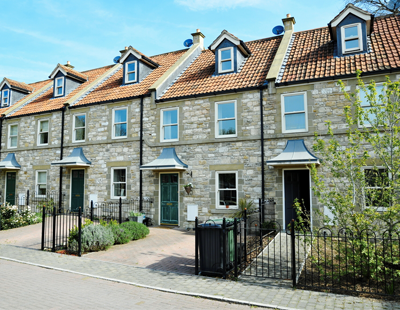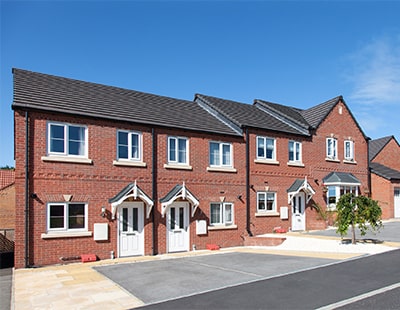
Not for the first time, a government policy on housing ends up begging more questions than it provides answers - but even so, I’m happy to give praise where it’s due for an attempt to do something about a crisis that seems to be never-ending.
Like social care, the need for more (volume) and more (affordable) housing has been something which successive governments have resisted tackling because of complexity and cost.
Arguably the Labour manifesto in December’s election - for all its frankly bizarre set of policies - set out a simplistic if holistic approach to the problem by calling for more council-built homes. This would have taken time, and a phenomenal amount of public money, but is a policy which in principle is backed by some Conservatives; they feel that the private sector alone is unlikely to provide homes at all price levels for those who need them.
The new government’s First Homes policy - announced on Friday - goes back to relying on the private sector entirely for the buildings, but with large-scale intervention in the free market to create a 30 per cent discount which specified homes would carry in perpetuity.
Well, in perpetuity so long as they are sold - time after time - to a first time buyer from the same locality or to one of the other key worker groups which different localities need.
It’s an attempt to tackle head on a long-running sore: why do so many young people have to move away from their areas to find affordable accommodation?
The bare bones of First Homes are:
-
private developers will build homes designated for the First Homes policy;
-
these will have a 30 per cent discount given to them by the developer, thus leading to comparable reductions in the deposits needed;
-
they can be bought by first time buyers who are from the area in question, and by armed forces veterans and (subject to local council priorities) by “front-line workers” such as teachers, nurses, prison officers and police;
-
the scheme will be funded through contributions that housing developers routinely provide through the planning system, so there should be no extra building costs for the private companies that participate;
-
the discount will apply when the home is sold, providing it is purchased by a member of those same groups.
So far, so good - and, as I say, the government should be praised for attempting to do something that tackles a genuine problem that has existed for some decades - young people being forced to move away.
But even a reading of the 31-page consultation document leaves substantial questions in the air. For example:
-
if the private developers fund 30 per cent discounts without additional expenditure, this means current Section 106 planning gain spending ends with the money diverted instead into First Homes. So what happens to S106, which in the past has funded schools, environmental improvements and road safety measures as well as affordable homes?
-
in turn, this diversion of funds to boost owner occupation will remove S106 money from affordable housing schemes, many of which involve social rented accommodation for the absolutely most needy - those at risk of homelessness. What about them?
-
what will prevent First Home properties looking very obviously like cheaper homes?
-
is this ideological pursuit of owner-occupation at the cost of improving the rental sector?
-
local councils deciding on local priorities is, of course, what localism is all about…but will we then get a new postcode lottery, where - say - police officers are in line for a 30 per cent discount in one council area, but not across the road in the adjoining council patch?
-
these units will be universally-regarded as subsidised housing, so how will that play with local residents in full-priced homes, especially if they are NIMBYs consulted during the planning applications for First Home properties? (and, let’s face it, many of those least keen on new homes are supporters of the current government too)…
-
in 2015 the then-Cameron led government promised 200,000 starter homes by 2020, exclusively for first time buyers under the age of 40. The National Audit Office this winter revealed that none (zero, zilch) were actually built. So is First Homes an attempt to cover the government’s embarrassment with a broadly similar scheme that’s re-badged?
-
what guarantees are in place to ensure developers’ assessments of market value, and thus of 30 per cent discounts, are accurate and fair? After all, a lot of developers have made a lot of money from self-regulated elements of that other government scheme, Help To Buy…
There are, as I say, a lot of questions - more than answers, alas. Perhaps these will all be raised, and more importantly addressed, in the consultation process that goes on until early April. We’ll see…but until then, the celebrations that we’ve finally got a policy that addresses the housing crisis will remain firmly on ice.
*Editor of Estate Agent Today and Letting Agent Today, Graham can be found tweeting about all things property at @PropertyJourn






.jpg)












%20A%20property%20tale%20for%20our%20times.png)







Join the conversation
Be the first to comment (please use the comment box below)
Please login to comment